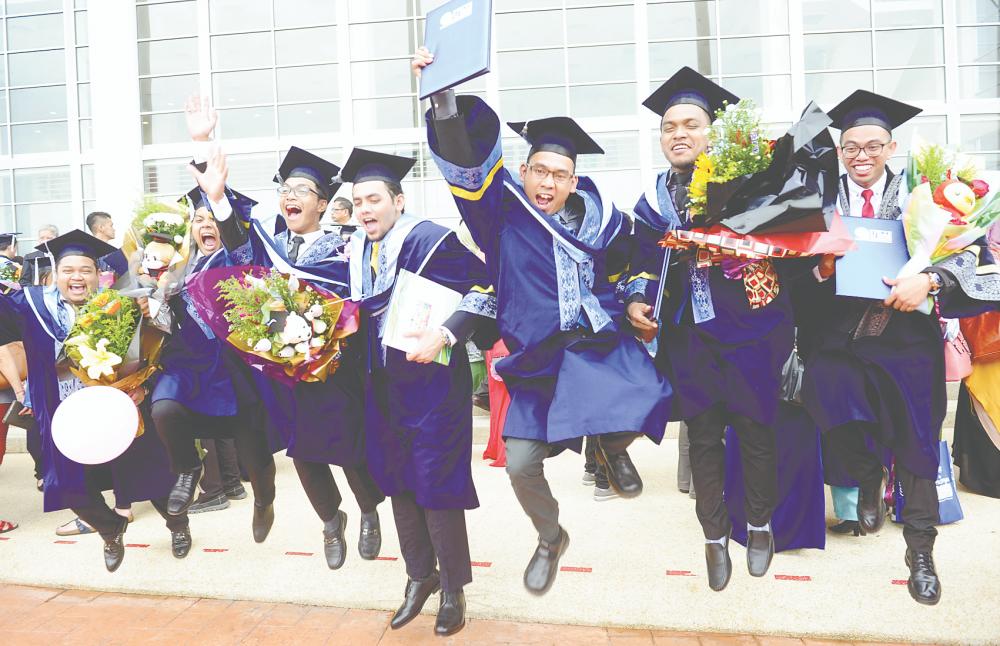PRIME Minister Datuk Seri Anwar Ibrahim’s Budget 2025 announcement of the minimum
wage increase from RM1,500 to RM1,700 has received mixed reactions across various economic sectors.
The Minimum Wage Order, effective in February, has implications for the higher education sector as the new minimum wage will further narrow the gap between it and the salaries of fresh graduates.
Education has long been viewed as a gateway to career success but recent trends in Malaysia have indicated a decline.
As reported in the 2023 Sijil Pelajaran Malaysia (SPM) examinations, 10,160 students (2.6% of registered candidates) did not sit for the exam.
Additionally, statistics indicate that Malaysia’s university enrolment rate has been on a decline, with only 42.57% of eligible students enrolled in tertiary education, significantly below the global average of 51.98% in 2020. This figure is also much lower compared to countries like Singapore (93%) and the United States (88%).
The Malaysian government’s decision to increase the minimum wage has sparked debates on the necessity of higher education. With SPM graduates now being able to
earn a liveable income without tertiary qualifications, some are led to question whether pursuing a degree is still worth the investment.
However, despite the wage hike, higher education remains a crucial stepping stone for long-term financial security and career advancement.
While minimum wage jobs are quick wins in providing immediate financial relief, degree holders experience significantly higher lifetime earnings and additional benefits.
Entry-level graduates earn between RM2,000 and RM3,000 per month, depending on the field, compared with SPM leavers earning RM1,700 to RM2,000. Over time, graduates will benefit from salary increments and career progression, whereas minimum-wage workers often face wage and professional development stagnation.
Based on the World Economic Forum 2030 Future Skills report, there is a clear skew towards artificial intelligence, big data and digital literacy. Hence, minimum-wage job opportunities are vulnerable to automation and economic downturns, leaving unskilled workers at greater risk of job displacement in the long run.
The development of human skills such as resilience, leadership, collaboration and the ability to learn is becoming increasingly crucial in a rapidly changing world.
A university environment provides this growth, as a recent study by the University
of Oxford highlights that self-formation empowers students to take greater urgency of their learning, enhancing their social mobility and ultimately improving their professional prospects and overall quality of life.
These growth elements are limited in a country’s human capital development, particularly when the population is primarily in entry-level positions.
Thus, the university environment provides youths with a nurturing and productive surrounding for developing leadership potential and pushing the boundaries of innovation, leading towards the national agenda of a knowledge economy.
In a time when societies are chasing paper qualifications, it is imperative for higher educational institutions to reflect on these statistics to pivot their strategies to remain competitive and relevant towards the future workforce and industry needs, to ensure graduate employment.
Prema Ponnudurai is the director while Dr Joseph Malaluan Velarde is the deputy director of the Education for All Impact Lab at Taylor’s University.
Comments: letters@thesundaily.com









